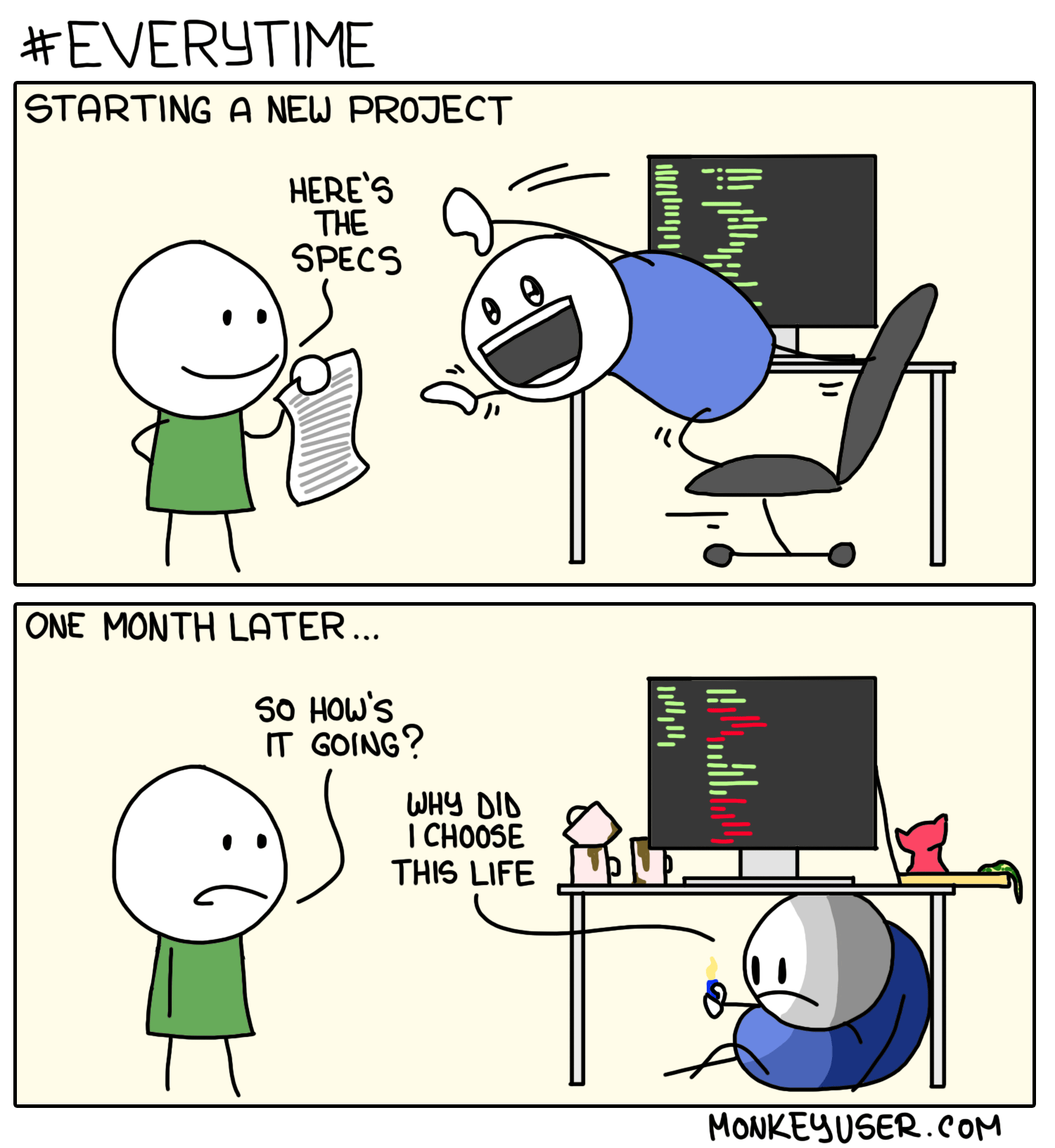Have you ever found yourself pausing, perhaps just a little, while writing, wondering if it's "everytime" as one word or "every time" as two? You are definitely not by yourself with this thought. It's a very common puzzle, one that trips up a lot of folks, even those who write a great deal. People often tell me they are a bit confused, because both versions seem to carry a very similar idea, like they mean the same thing. So, you might ask, is there really any difference beyond how they are spelled? We're going to get into that right now.
This little bit of grammar, you see, can actually make a big difference in how clear your writing is. It's not just about getting a rule right; it's about making sure your message comes across exactly as you intend. When you're putting words together, say, for an email to your company's customers, or even just a casual note, you want to be sure you're using words in a way that feels natural and correct. It just helps everything flow better, you know?
For a lot of us, this question pops up pretty often. Maybe you hear "everytime" in a song, or someone says it in conversation, and it sounds perfectly fine. That's a part of why it's so confusing. But, in fact, there's a clear answer, and once you get it, you'll feel a lot more confident with your writing. We'll look at some examples, some from my own thoughts, and really clear up this common point of confusion for good, which is a pretty good thing to do.
Table of Contents
- The Common Mix-Up: Why It Happens
- The Grammar Rule: 'Every Time' is Two Words
- Real-World Examples from "My Text"
- When 'Everytime' Shows Up (and Why It's Still Incorrect)
- Frequently Asked Questions About 'Every Time'
- Making It Stick: Tips for Using 'Every Time' Correctly
The Common Mix-Up: Why It Happens
So, why do so many people get "everytime" and "every time" mixed up? Well, a big part of it is how they sound. When you say "every time" quickly, the two words tend to blend together, almost like they are one single word. This makes it seem natural to just write them as one, too. It's a bit like how some people might write "alot" instead of "a lot," even though "a lot" is also two separate words.
There's also the influence of other words that *are* written as one, like "everywhere" or "everyone." Since "every" combines with other words to form single words, it's easy to think "everytime" follows the same pattern. But, actually, it doesn't quite work that way for "time." This is a key point to remember, you know?
Another reason for the confusion comes from how "everytime" sometimes gets used in very informal settings, like in some songs or casual talk. My own thoughts tell me that "everytime" can act as an intensifier in these cases. For instance, if someone says something "gets me everytime," it suggests a strong feeling, like "I can never get used to it." This informal use, though common, doesn't make it a proper word in standard writing. It's just a habit that some people have picked up, more or less.
The Grammar Rule: 'Every Time' is Two Words
Here is the simple truth: "every time" is always, and I mean always, two words. There is no such single word as "everytime" in standard English dictionaries. This is a pretty straightforward rule, yet it causes a surprising amount of trouble for folks. It's a bit like knowing your left from your right; once you know, it's quite clear.
Understanding 'Every' and 'Time'
To really get why "every time" is two words, it helps to look at what each word means on its own. The word "every" is what we call a determiner. It means "each" or "all events" in a group, but when you think about them one by one. For example, if you say "every student," you are thinking about each student separately, but also the whole group of them. It pretty much points to all the individual parts of a set.
The word "time" in "every time" is used as a countable noun. This might seem a bit odd at first, because we often think of "time" as something uncountable, like "I don't have enough time." But in this specific phrase, "time" refers to an instance or an occasion. So, "every time" means "every single occasion" or "each instance." It's quite a specific way the word "time" is being used here, you see.
How 'Time' Behaves as a Word
Consider the difference in how "time" works. When we talk about "all the time," we mean constantly or continually. In that phrase, "time" is indeed uncountable; you can't say "three times" in the same way you can't say "three waters" without specifying a unit. However, when we say "every time you do X," the "time" here refers to each distinct instance or occasion that X happens. It's like counting the occurrences, which makes it countable in this particular usage. This is a very important distinction, as a matter of fact.
Think about it like this: you can say "one time," "two times," "three times." Since you can count individual "times" or instances, "time" in this context is a countable noun. And because "every" works with countable nouns (like "every dog," "every car," "every day"), "every time" fits this pattern perfectly. It's just how the English language tends to be constructed.
Comparing with 'All the Time' and 'Any Time'
Let's also look at how "every time" compares to similar phrases. You might say "all the time," which means constantly. Here, "time" is indeed uncountable, as we talked about. You can't really count "all the time" as separate units. It refers to a continuous stretch. So, that's a bit different, isn't it?
Then there's "any time." The word "any" typically chooses one item from a set, or perhaps a few, but not necessarily all. For example, "You can come any time you like" suggests flexibility, picking one moment from many possibilities. In contrast, "every" chooses all items from a set. So, if you say "every time I go there," it means literally each and every visit, not just one or a few random visits. This distinction, in a way, helps show why "every time" is about individual instances, consistently.
This is similar to the difference between "everywhere" and "anywhere." "Everywhere" means all places, while "anywhere" means one place from a set of places. The logic for "time" works the same way. You want to be able to look at something "any time" you look at your phone, meaning at your convenience, at one of those moments. But you want to look at it "every time" you look at your phone, meaning without fail, on each and every occasion you pick up the device. This is a pretty clear difference, you know?
Real-World Examples from "My Text"
Let's take some examples from my own notes and see how "every time" works in real sentences. Seeing it in action often makes the rule much clearer. These examples really help to cement the idea, I think.
Observing Changes Over Moments
One example I had noted was: "He never looked quite the same every time she looked at him." Here, "every time" refers to each individual instance that she cast her gaze upon him. Each glance was a distinct moment, and in each distinct moment, his appearance seemed to shift. It's about a repeated action, and the outcome of that action on each occasion. This is a classic use of the two-word phrase, you see.
Continuous Learning Experiences
Another thought was: "Whenever every time I go there I learn something new." This sentence, while perhaps a bit wordy with "whenever" and "every time" together, still uses "every time" to mean "on each occasion that I go there." It highlights a consistent pattern of learning from each visit. So, basically, each trip brings a fresh piece of knowledge, which is a pretty cool thing.
Personal Glances at a Device
I also thought about wanting to "be able to look at it every time I look at my phone." This means that on each and every occasion I glance at my phone, I want to be able to see "it." It's not just some of the times, or any random time, but literally every single instance. This shows the comprehensive nature of "every time," encompassing all possible moments of looking. It's a very clear illustration, I mean.
The Dime for Every Hand Thrown Up
Consider the common saying, "If I had a penny for all the possibilities I presented, if I had a dime for every hand thrown up." Here, "every hand thrown up" means for each distinct instance of a hand being raised. If you were to count them, each one would be a separate "time" or occurrence. This usage is about counting individual events. It really highlights the idea of counting instances, doesn't it?
The Nickel Example and Informal Use
I came across a phrase: "The phrase 'I wish I had a nickel' just means that he'd be rich by now if he got a nickel everytime someone threatened him in some way." In this particular quote, "everytime" is used as one word, but it's important to recognize that this is an informal or colloquial usage. The speaker means "every time" (two words), referring to each instance of a threat. It's a good example of how the incorrect single-word form slips into casual language, especially when conveying strong feelings. To be honest, it shows how language can be a bit loose sometimes.
The sentiment behind "he'd be rich by now if he got a nickel everytime someone threatened him" is that such threats happen so often, so consistently, that if he were paid for each one, he'd have a lot of money. This underlines the meaning of "every time" – referring to all individual instances – even when the word is incorrectly written as one. It really just means "on every single occasion," you know?
When 'Everytime' Shows Up (and Why It's Still Incorrect)
So, if "every time" is always two words, why do we see "everytime" written as one so often? This is where the difference between formal, written English and informal, spoken language becomes pretty clear. It's a common thing to notice, actually.
Informal Speech and Songs
As I mentioned earlier, "everytime" pops up quite a bit in songs, poems, and casual conversation. Songwriters, for example, might choose "everytime" because it fits the rhythm or simply because it's how many people speak. When you hear a phrase like "Everytime we touch," the single word might feel more punchy or just sound more natural in a lyrical context. This is perfectly fine for creative or very informal uses, but it doesn't change the standard grammar rule. It's just how some artists choose to express themselves, in a way.
The Intensifier Effect
My notes mentioned that "everytime" can act as an intensifier, suggesting something like "I can never get used to it." This is a fascinating insight into how language evolves and how people use words to add emphasis. When someone says "that gets me everytime," they are not just saying it happens often; they are stressing the consistent, impactful nature of the occurrence. It's a very strong way to put it, you know?
However, even when used as an intensifier, "everytime" as a single word is still not considered standard written English. It's a colloquialism, a phrase or word used in informal speech that isn't always grammatically correct. For formal writing, whether it's an email announcement to your company's customer base or an academic paper, sticking to "every time" (two words) is the way to go. It just helps keep things professional and clear, you know?
Frequently Asked Questions About 'Every Time'
People often have similar questions about this particular grammar point. Here are some common ones that pop up, along with clear answers. These are the kinds of things that often get asked, I've noticed.
Is "everytime" ever correct?
No, "everytime" as a single word is not correct in standard English. It is a common misspelling of the two-word phrase "every time." While you might see it in informal writing or hear it in casual speech, it should be avoided in formal contexts. It's just not how the word is supposed to be written, basically.
How can I remember to use "every time" as two words?
A simple trick is to remember that "every" is a separate word that modifies "time." You can often insert another word between them, like "every single time" or "every other time." Since you can put a word in the middle, they must be separate. This little test can be pretty helpful, I find. Also, think of it like "each time" – you wouldn't write "eachtime," would you?
Does "every time" mean the same as "always"?
"Every time" and "always" are very similar in meaning, but they are not exactly the same. "Every time" refers to each specific instance or occasion that something happens. "Always" means at all times, continually, or without exception. So, if something happens "every time" you do X, it implies it happens "always" when you do X. "Always" is a bit more general, covering all instances without specifying the "time" component. They are nearly interchangeable in many situations, but "every time" emphasizes the repetition of discrete events. It's a subtle difference, but it's there, you know?
Making It Stick: Tips for Using 'Every Time' Correctly
Now that we've cleared up the confusion, how can you make sure you always use "every time" correctly in your writing? It's really about building a good habit. These simple tips can help you remember, which is pretty good.
Think of "Each Instance": When you're about to write "everytime," pause and ask yourself if you mean "each instance" or "each occasion." If you do, then it's "every time" (two words). This mental check can be very useful, you know.
Read Aloud: Sometimes, just reading your sentence aloud can help. If "every time" sounds like two distinct words when you say it slowly and clearly, then it should be written as two. It just helps your ears catch any oddities, you see.
Practice with Examples: The more you use "every time" correctly, the more natural it will feel. Try writing a few sentences yourself using the phrase. For example, "Every time I go to the library, I find a new book to read." Or, "She smiles every time he tells a joke." This kind of practice really helps it stick, I think.
Proofread Carefully: Before you send that important email or publish your blog post, give it a quick read-through. Look specifically for instances where you might have accidentally typed "everytime" as one word. A quick check can save you from



Detail Author:
- Name : Arlo Kirlin
- Username : lbruen
- Email : kub.winnifred@mann.com
- Birthdate : 1978-01-11
- Address : 1799 Eugene Flat Suite 293 Darenland, AL 42561
- Phone : 724.720.3182
- Company : Gutkowski PLC
- Job : Welder
- Bio : Nesciunt laborum voluptas est est voluptas. Et libero et dolore quam et vitae nam. Rerum ut ut soluta porro alias fugit quia. Commodi exercitationem non labore quasi.
Socials
tiktok:
- url : https://tiktok.com/@gottliebt
- username : gottliebt
- bio : Atque minima magni incidunt corrupti non tempore.
- followers : 4843
- following : 2467
instagram:
- url : https://instagram.com/tgottlieb
- username : tgottlieb
- bio : Eos sit fugit quibusdam. Inventore voluptatem rerum maiores illum.
- followers : 4291
- following : 2844
linkedin:
- url : https://linkedin.com/in/trevion.gottlieb
- username : trevion.gottlieb
- bio : Porro eaque eum a est.
- followers : 6301
- following : 2891

